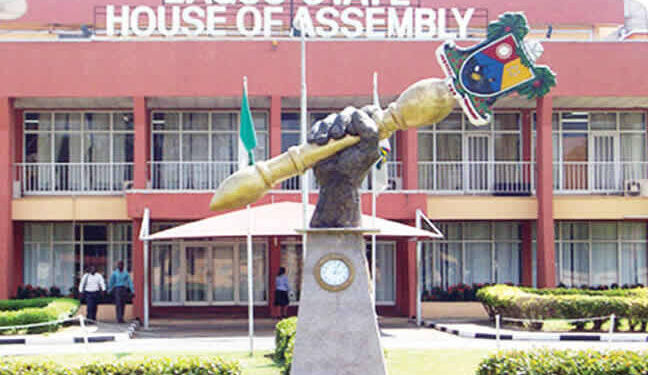The Lagos State House of Assembly has confirmed that the Department of State Security (DSS) has released the detained lawmakers after hours of interrogation over the speakership crisis.
The Chairman, Ad Hoc Committee on Information, Mr Stephen Ogundipe, confirmed the development to the News Agency of Nigeria (NAN) in Lagos on Thursday.
NAN reports that two lawmakers, Lanre Afinni (Lagos Island 2) and Sylvester Ogunkelu, were detained on Thursday morning by DSS officials in the state.
The lawmakers were interrogated over the removal of former Speaker Mudashiru Obasa, who was ousted by a majority of members on Jan. 13 and replaced by Mojisola Meranda.
They were allegedly detained for breaking into a House store where the mace was kept, enabling lawmakers to sit and impeach the former speaker.
In solidarity, Deputy Speaker Mojeed Fatai and other members stormed the DSS office to secure their colleagues’ release.
Confirming the development, Ogundipe told NAN that all detained lawmakers had now regained their freedom.
He said the Assembly reaffirmed that Obasa’s removal was legal and constitutional, following due process.
“Today, members of the Lagos Assembly honoured an invitation from the Lagos DSS Command in Shangisha. We provided insights into the removal of the ex-speaker.
“At the DSS office, we reaffirmed our commitment to upholding constitutional governance following his removal.
“The decision followed the 1999 Constitution and the Powers and Privileges Act, which empower the Assembly to regulate its internal proceedings without interference.
“Sections 92 and 96 outline the process for electing and removing the Speaker, and we adhered to due process.
“It is public knowledge that legislative autonomy allows state assemblies to conduct their business freely within designated chambers,” he said.
Ogundipe insisted that the former speaker’s removal was democratic and met the required legal majority.
He said any challenge to this lawful action undermines the constitutional authority granted to the Assembly.
The Assembly, he emphasised, exercised its constitutional duty in the best interest of Lagos residents.
Ogundipe commended the DSS for its professionalism, especially the Lagos Command Director, for ensuring a smooth engagement.
He said the invitation allowed them to present their account of events in a professional and comfortable environment.
He also reiterated the Assembly’s commitment to legislative duties that serve people of Lagos and ensure effective governance.
Ogundipe urged all stakeholders, including the executive and the public, to respect legislative proceedings and avoid undue interference. (NAN)











